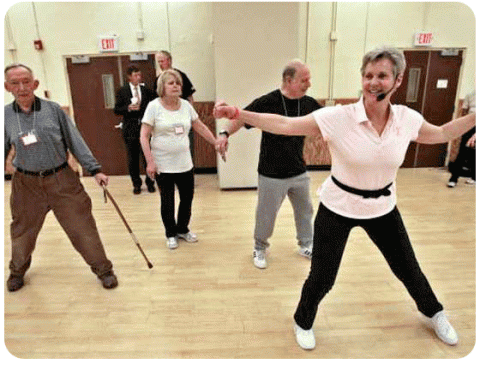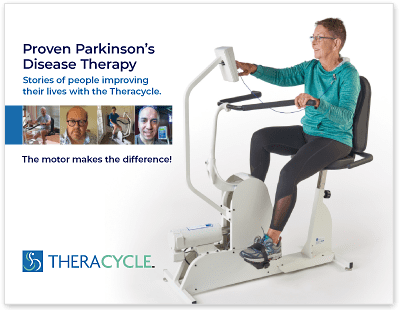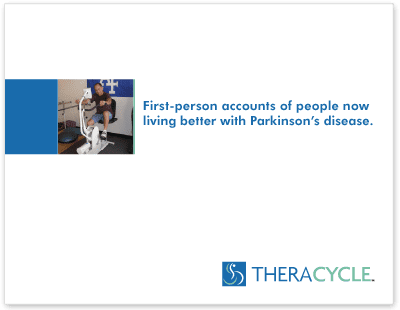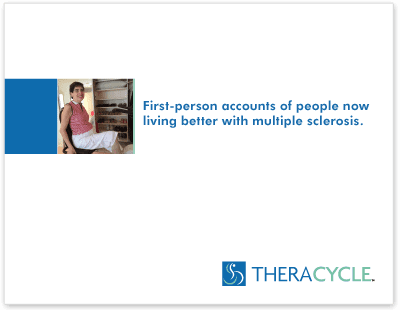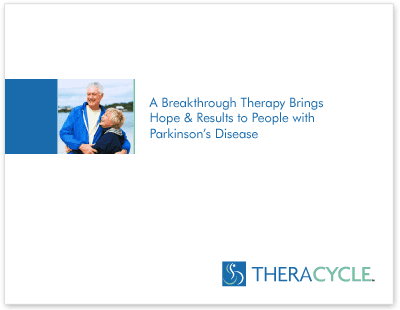- ›
- Stories
- ›
- Uncategorized
- ›
- Is Exercise the New Drug for Parkinson’s Disease?
Stories
Is Exercise the New Drug for Parkinson’s Disease?
 In our earlier post, “Delay the Disease – Exercise to Fight Parkinson’s Symptoms” you met David Zid and Jackie Russell, the founders of Delay the Disease—an exercise program developed specifically for people with Parkinson’s disease.
In our earlier post, “Delay the Disease – Exercise to Fight Parkinson’s Symptoms” you met David Zid and Jackie Russell, the founders of Delay the Disease—an exercise program developed specifically for people with Parkinson’s disease.
Here in her first guest post for the Theracycle Blog, Jackie Russell provides her expert opinion on the topic “Is Exercise the New Drug for Parkinson’s Disease?”
Is Exercise the New Drug for Parkinson’s Disease?
By Jackie Russell, RN,BSN, CNOR, Delay the Disease Partner/Project Editor
Parkinson’s disease has the ability to rob a person of their independence, their optimism, and their ability to live life to the fullest. It is a devastating progressive neurologic disease that currently does not have a cure. There is mounting evidence, however, that demonstrates exercise to be an essential part of managing the disease.
Current research about why exercise appears to improve symptomatic progression in this disease is compelling. The overriding goal of all people involved in the treatment of Parkinson’s is to make the impact of this disease as insignificant as possible, working constantly for normality in the face of a progressive illness. Despite dramatic improvements in treating PD over the last two decades, this task is challenging beyond words.
Studies currently document with increasing evidence that dedicated Parkinson’s exercise routines actually recruit new brain regions to perform tasks that were otherwise lost due to previous nerve cell damage. These exercises appear to increase brain levels of specific, powerful chemicals known as growth factors. These growth factors may actually work to restore sick or damaged nerve cells back to a state of improved health. This concept of neuroprotection, neurogenesis is an exciting concept for those diagnosed with a disease that was previously thought to be a continuous downhill neurologic sentence. The thought that daily exercise may restore “normal” appearance, function and increasing independence fuels the patient and their entire support system.
Our experience in operating the Delay The Disease exercise program shows that exercise appears to slow the progression of symptoms and even reverse symptoms in some. While studies are ongoing, we’re convinced that daily rigorous exercise can change lives. It is FDA approved, mixes well with other medications . . . why wouldn’t you try it?




